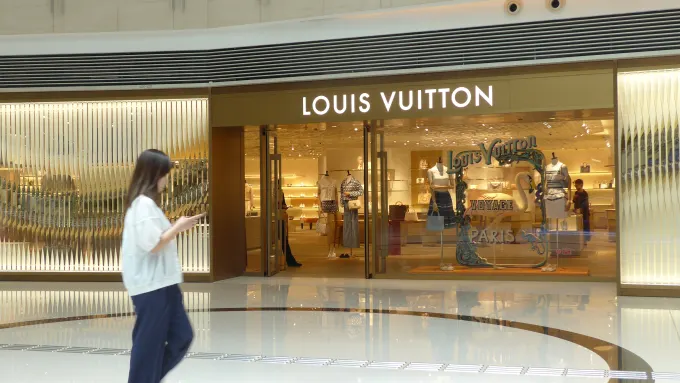
China’s Economic Slowdown Hits Consumer Confidence, Fueling Growth in Dupe Market
For Zheng Jiewen, a 23-year-old working at an ad agency in Guangzhou, China’s economic downturn is far from a theoretical issue. As a print model, Zheng once earned around 30,000 yuan ($4,230) a month. However, starting last year, her salary began to shrink as her company’s new business declined. By February, her income had been slashed by half.
“I was in shock,” Zheng shared in an interview with CNN. She immediately cut back on her spending, foregoing luxury brands like Louis Vuitton, Chanel, and Prada, which were previously her favorites.
This economic slowdown has sparked a significant shift in consumer behavior. According to Laurel Gu, a director at Mintel, a Shanghai-based market research firm, searches for affordable “dupe” products have tripled between 2022 and 2024. These high-quality replicas of branded goods, known as “pingti” products in China, are gaining popularity, with many of them indistinguishable from the originals.
Gu noted that a decade ago, Chinese consumers—once the world’s top luxury shoppers—were eager to purchase Western designer brands. Today, however, economic challenges have prompted a shift toward more affordable alternatives. This trend, Gu said, has now become “the new mainstream.”
The Rise of Dupes
The dupe market offers consumers a cheaper alternative to luxury goods. For example, Lululemon’s Align yoga pants cost 750 yuan ($106) on the brand’s official Chinese website. On popular e-commerce platforms like Tmall, similar leggings, often marketed with names mimicking Lululemon, are available for as little as $5.
The rise of dupes is impacting major luxury brands. LVMH, which owns Louis Vuitton and other high-end labels, reported a 10% drop in sales in the Asia region (excluding Japan) during the first half of 2024 compared to the previous year. China, the dominant market in this region, is a major contributor to this decline.
The popularity of affordable alternatives is contributing to sluggish consumer spending and weak retail sales in China. This downturn in consumption has caused some economists to worry that the country may not meet its 5% growth target for the year.
Government Intervention
In response to the economic slowdown, China’s central bank recently implemented a series of measures aimed at stimulating growth. These include cutting its main interest rate and reducing the reserve requirements for banks, freeing up funds for lending. These actions led to rallies in Chinese stock markets, with the Hang Seng Index and the Shanghai Composite Index both experiencing significant gains.
However, consumer confidence remains fragile. A report from Nomura’s economists highlighted that China’s consumer confidence index dipped slightly in July, remaining just above the historic low seen in November 2022. Shoppers are holding back due to falling stock prices, capital flight, and slow wage growth.Xinxin, a math teacher from Chongqing, once a fan of Estée Lauder’s Advanced Night Repair serum, is one such consumer. After facing a 20% pay cut due to financial issues in her school district, she switched to a more affordable skincare alternative, saving significantly while still using products with similar ingredients.
“Why dupe? Pay cut, of course!” Xinxin quipped.
Economic Woes and Consumer Behavior
The economic slowdown has taken a toll on China’s younger workforce as well. Unemployment among those aged 18 to 24 reached 18.8% in August 2024, the highest since this data began being reported in January.
The property market, once a pillar of China’s economy, has also experienced a significant downturn. Real estate prices have dropped nearly 30% since 2021, causing a massive loss in household wealth. Barclays economists estimate that the housing slump has resulted in an $18 trillion reduction in Chinese household wealth, with each family losing the equivalent of $60,000 on average.
To address these challenges, China’s government is focusing on expanding manufacturing, particularly in electric vehicles. However, its strategy of exporting excess capacity has led to global pushback, particularly from European carmakers.
As China’s economic struggles continue, the dupe trend highlights a broader shift in consumer behavior, with more and more shoppers turning to affordable alternatives amidst the financial uncertainty.


